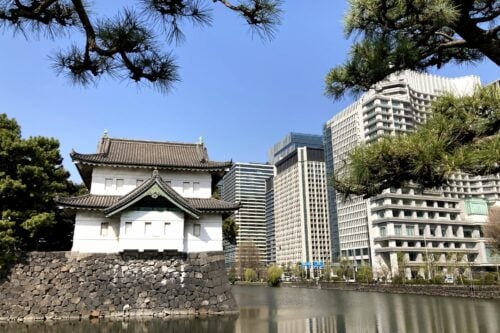Choosing a favorite baby name can feel intimacy and affectionate. When parents name their children, they put a lot of thoughts and consideration into it.
Share on your favorite
Or copy the link
Below are navigation links that will take you to the main text and navigation menus.
26,551 first names, 70,620 last names, 333,585 kanji variations.
one of the best Japanese name search tools for your baby!

Have you ever heard “Kira-kira name”? In Japan, there is a controversial trend of the naming of your child a so-called “Kira-kira name”. In English, this translates to a “glittering name” or “sparkling name” is an unusual name. These names are unintelligible, as they use kanji characters that aren’t commonly used for people’s names, and don’t match the usual pronunciations.
Contents
Here is one example of a typical glitter name. It’s called “光宙”, meaning “lights up/ shining space”. Do you have any idea what this name reads?
It actually reads “Pikachu”. That’s right, the name comes from the hugely popular Pokémon Pikachu.
Glitter names are used only for the first name, for both boys and girls, not for the last name. The phenomenon is said to have been on the rise since the 1990s.
“Kira-kira” is an onomatopoeia used to describe sparkling, glittering, twinkling, etc. the way a lot of little things reflect light and twinkle. “Kira-kira” is usually used in a positive sense for pretty/ beautiful things, however, in this case, there is a bit of sarcasm involved.
“Kira-kira names” caused a well-known controversy in Japan is the “Devil-chan Naming Controversy”.
In 1993, a father submitted his son’s name to the city council as “悪魔”, meaning “Devil”. However, the name was rejected as there was a consideration that potentially could hurt the child’s future and it was not appropriate as a person’s name.
1. 翔馬 ( ぺがさす/ Pegasus ) meaning: 翔 flying, 馬 horse
2. 王様 ( キング/ King ) meaning: 王様 king
3. 天使 ( エンジェル/ angel ) meaning: 天使 angel
4. 純 ( ピュア/ Pure ) meaning: 純 pure, genuine
5. 野生 ( わいるど/ Wild ) meaning: 野生 wild
6. 主人公 (ヒーロー/ Hero ) meaning: 主人公 a main character
7. 本気 ( まじ/ Maji ) meaning: 本気 serious – “Maji” is commonly used slang for serious.
8. 偉人 ( ぐれいと/ Great ) meaning: 偉人 a great man/ a historical figure
9. 混沌(かおす/ Chaos ) meaning: 混沌 – chaos
10. 楽気(ラッキー/ Lucky ) meaning: 楽 easy, fun, 気 sprit, feeling
11. 愛猫(キティ/ Kitty ) meaning: 愛 love, 猫 cat
12. 泡姫 (アリエル/ Ariel ) meaning 泡 bubble, foam 姫 princes
13. 美富 ( びとん/ Biton ) meaning: 美 beauty, 富 wealth
– The name was taken from Louis Vuitton.
14. 黄熊 ( ぷう Pooh ) meaning: 黄 yellow, 熊 bear
– Obviously, the name comes from “Winnie the Pooh”
15. 今鹿 ( なうしか Nausicaä) meaning: 今 now, 鹿 dear
– Dear called in Japan shika. The name might be inspired by “Nausicaä of the Valley of the Wind” of Studio Ghibli.
It seems that parents want to give their children unique and one-of-a-kind names, influenced by anime, manga, movies and other forms of entertainment.
Perhaps they have the desire to give their children an advantage in today’s world, where individuality is increasingly important.
Parents are likely to put a lot of thoughts/ hopes into the naming of their children, however, many are a bit critical of the “Kira-kira” naming phenomena. A common criticism expressed is individuals are treating the children as if they are accessories. Some argue it is unacceptable to give a child a name that he/ she may be burdened with for the rest of their life. However, a child that does not like their glittery name could consider to change it or to use a different name in the future.
“Kira-kira name” could potentially harm the children’s education and employment opportunities. It has been said that it is always mistaken something that would be difficult to read, also they might cause to bullying or discrimination at school. Or there would be a risk of lowering their reputation for social impressions, which could put them at a disadvantage in their job hunting, etc. The name itself, as well as appearance and social status, could affect interpersonal evaluations.
It may seem like all the disadvantages, but there is one advantage that is quite important. It is easier for people to remember a “Kira-kira name” since they are very different from standard names. Also, it is probably easier to be recognized as an individual. This may be an advantage in a society that values the originality.
Recently, the naming “Kira-kira name” have gone beyond the trend to take hold.
What do you think about the “Kira-kira” naming in Japan?





Sort by: Most Kanji Variations
Sorts names by how many different kanji spellings they have. In general, names with more variants tend to be more familiar and widespread in Japan (with some exceptions).
Sort by: Most Viewed
Sorts names by page views on this site. Views reflect global traffic (including Japan), so this does not represent popularity among Japanese people only. A high view count does not necessarily mean the name is famous in Japan.
What is Hiragana?
Hiragana is one of the two Japanese syllabaries. Each character represents a sound (mora), not a meaning. It is used for native words, grammatical particles, verb/adjective endings (okurigana), and to show pronunciation above kanji (furigana). It developed from cursive forms of kanji.
What is Katakana?
Katakana is one of the two Japanese syllabaries. Each character represents a sound (mora), not a meaning. It is mainly used to write foreign words and names, loanwords, onomatopoeia, and for emphasis.
What are English Syllables?
A syllable is a unit of pronunciation in English — it’s the beat you hear when you say a word.
Here are a few quick examples:
cat = 1 syllable
ba-by = 2 syllables
beau-ti-ful = 3 syllables
On this site, English Syllables show how a name naturally breaks into sounds when spoken in English. This helps you understand how English speakers naturally say the name and where they pause between sounds.
What are Japanese Morae?
A mora (plural: morae, Japanese: 拍 Haku) is the basic unit of sound in Japanese — think of it as one rhythmic “beat” when speaking.
Here are a few quick examples:
あ (a) = 1 mora
あい (a-i) = 2 morae
きょう (kyo-u) = 2 morae
On this site, Japanese Morae show how many “beats” a name has in Japanese. Most Japanese names have about 2–4 morae, which affects how natural and rhythmic the name sounds to native speakers.
This helps you see how the name fits into the natural rhythm of Japanese speech.
What is English Transcription?
“English transcription” (romanization) is the romanized form of a Japanese name, intended to reproduce its pronunciation as closely as possible. It is also useful for searching names on this site.
Japanese-Style Nicknames
In Japan, nicknames are used to express familiarity and affection. Typical features include:
Shortened forms: Names are often shortened for closeness, e.g., “Yuki” from “Yukiko” or “Taka” from “Takashi”.
Suffixes: Terms like “-chan” (often for girls, also for young children) and “-kun” (often for boys) are used among family and close friends. Among very close adults, “-chan” may still be used. More details
Use & context: Nicknames are informal—common among friends, family, or close colleagues—and are not suitable for formal or professional settings. Their use implies a certain degree of intimacy.
Long vowels: The long vowel mark “chōonpu” (ー) extends the preceding vowel. For example, “あーちゃん” (A-chan) lengthens the “あ” sound.
Households
Sorts surnames by the estimated number of Japanese households that use them. More households generally indicates a more common or well-known surname.
About our last-name data
